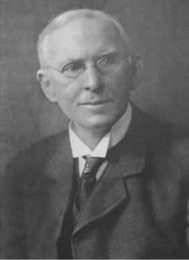
Kieran’s Our City, Our Town Article,
Cork Independent
2 February 2012
Technical Memories (Part 4)
A Question of Life or Death
“In this country, he went on, the question to which we invite your attention to is literally one of life or death; it is a question, which involves that other great question, whether we are going to stop that terrible drain of emigration, which has been sapping the strength of this country far too long…the technical education movement might itself be used to stem that tide of emigration”, Journalist on Bertram Windle, Industrial Conference at Cork, 21 November 1905.
The exhibit of the Department of Agriculture and Technical Instruction’s at the Cork International Exhibition 1902 was deemed a great success. It enthused those involved in education down south to do as much as they could to rally support for the movement. In the years following the exhibition one of the key figures to emerge in Cork and to push the movement was Bertram Windle (1858-1929), who became the President of Queen’s College Cork in 1901. In setting out his background and work in Cork, at the outset one of his notable traits was his mass of interest and experience in different matters concerning education in not just Cork but across the country. There is also the matter of the energy he put into his various pursuits. On the study of Windle one is blessed with a myriad of archival material in UCC’s Boole library and great reviews of his life and times by John A. Murphy, and Ann and Dermot Keogh. There are also the myriad of obituaries, which appeared in local and national newspapers at the time of his death in July 1929.
By the time Staffordshire born, Bertram Windle arrived in Cork in 1901, he already had a notable academic career. Starting as a senior moderator in natural science, after qualifying he was appointed Demonstrator in Anatomy and Histology at the Irish College of Surgeons, and in the following year Pathologist at the General Hospital in Birmingham. In this city he was destined to spend twenty years of his active career. He soon became Professor of Anatomy in the Medical School, which at that time was affiliated to the Queen’s College as an Anglican theological seminary.
Shortly afterwards, Bertram Windle started a movement, which resulted in the transfer of the medical school to the undenominational Mason College where he became Dean of the Medical Faculty. His ability to lobby government transformed it subsequently into the University of Birmingham. During this time he converted to Catholicism and also married Madoline, daughter of W. Hudson of Birmingham. He began to write and publish a number of books on medical and topographical subjects. These books were the fruits of his historical and literary studies. His closing years in Birmingham were sadly marked by the death of his wife and two infant sons. He also had two daughters.
His association with the Catholic life of Birmingham, in which he played an active part as a member of the Society of the St Vincent De Paul and otherwise, brought him in contact with the Irish exiles in that city. He became a supporter of various Nationalist organisations as well as being keenly interested in the future of Ireland. He also began to take an interest in the wider aspects of education, having served on the Birmingham School Board, and also as a member of the Consultative Committee to the English Board of Education. These activities led to the Presidency of the Queen’s College, Cork, which was offered to him in 1901 by George Wyndham, then Unionist Chief Secretary for Ireland, and which after personal investigation, he accepted.
At that time Queen’s College Cork was little more than an excellent medical school, which created doctors, many of whom emigrated. The priorities for the college at this time was its low numbers, poor morale, lack of finance for development, the absence of any real university context, the unrepresentative nature of its ruling body, and general public indifference. The figure and voice of the new President began to change those issues. New projects for the development of the College were successfully launched. With the warm support and assistance of old students from all over the world, a student’s Club was erected, new faculties were inaugurated, new lecturers were appointed, and money for additional buildings squeezed from the reluctant Westminster Treasury.
Betram Windle’s activities during these years were by no means confined to Cork. As President of the Irish Technical Association, at the Industrial Conference in Cork in November 1905, he noted:
“The technical movement was open to every Irish man and woman; it knows nothing of political or religious difference, as that great meeting showed. We want to make the movement a practical one, and not a Cork conference…I ask whether it would not be a useful thing to bring about a closer touch between the Technical Education Committee and the Industrial Development Associations, which were springing up over the country…Delegates should attack their task. You are met with the object of doing a piece of work for yourselves and by yourselves, because you think it is a good thing that it should be carried out”.
To be continued…
Caption:
626a. Photograph of Bertram Windle (picture: UCC Library)